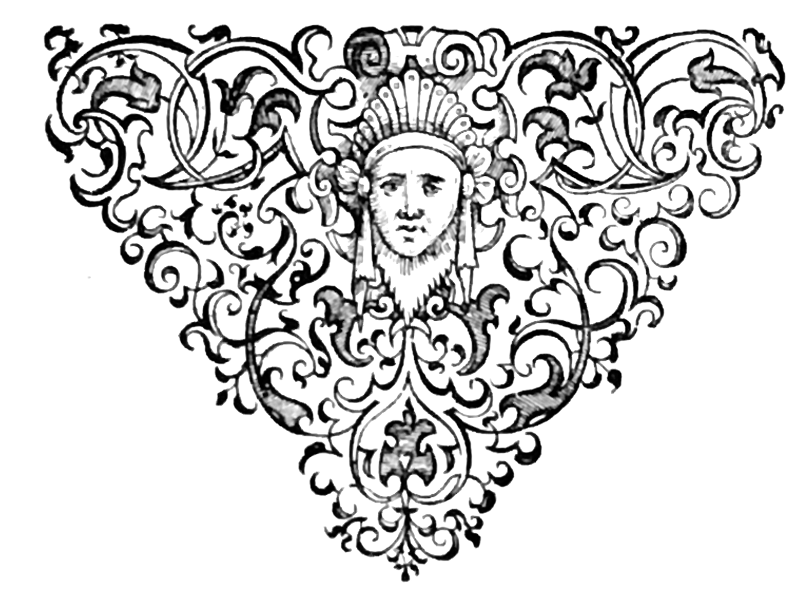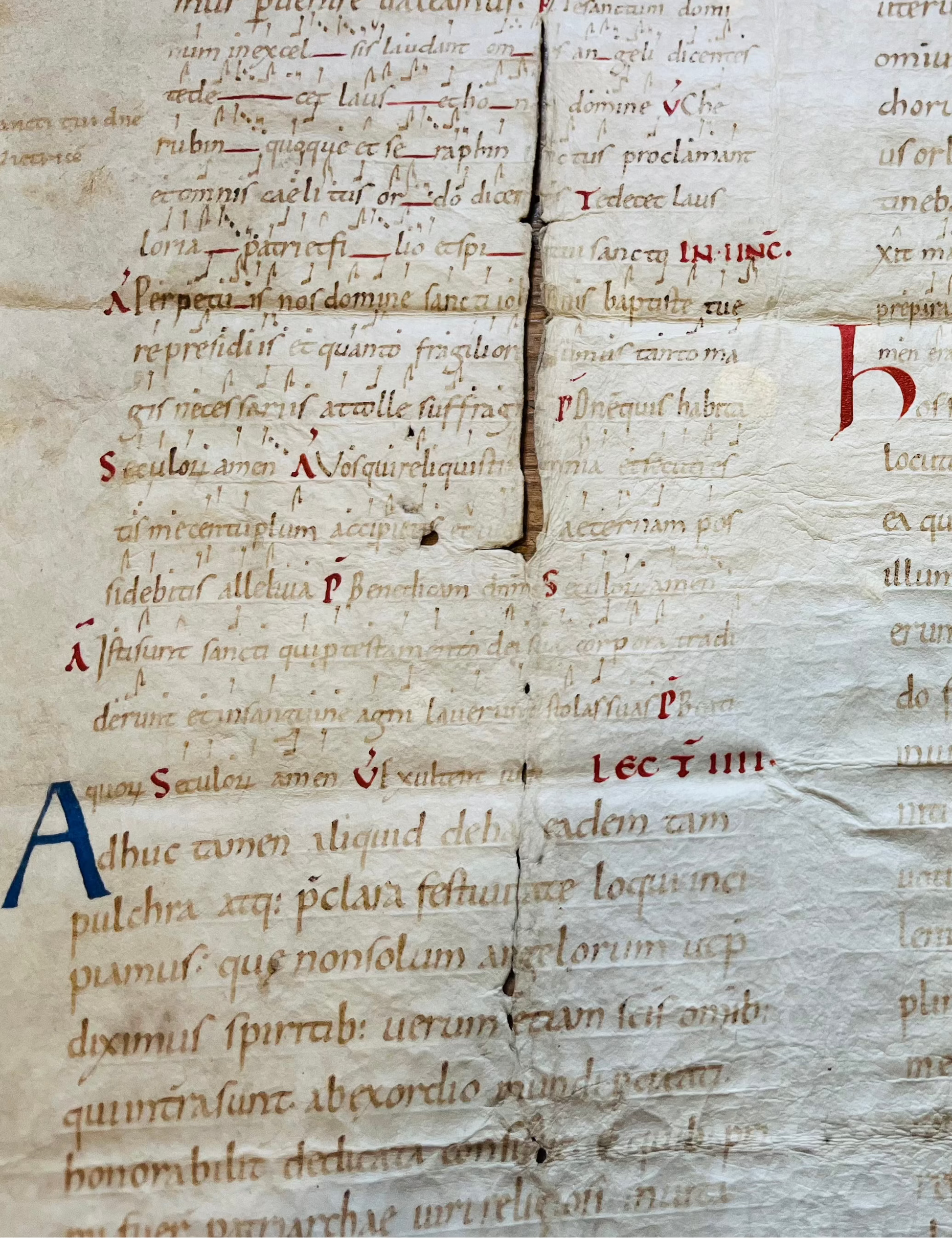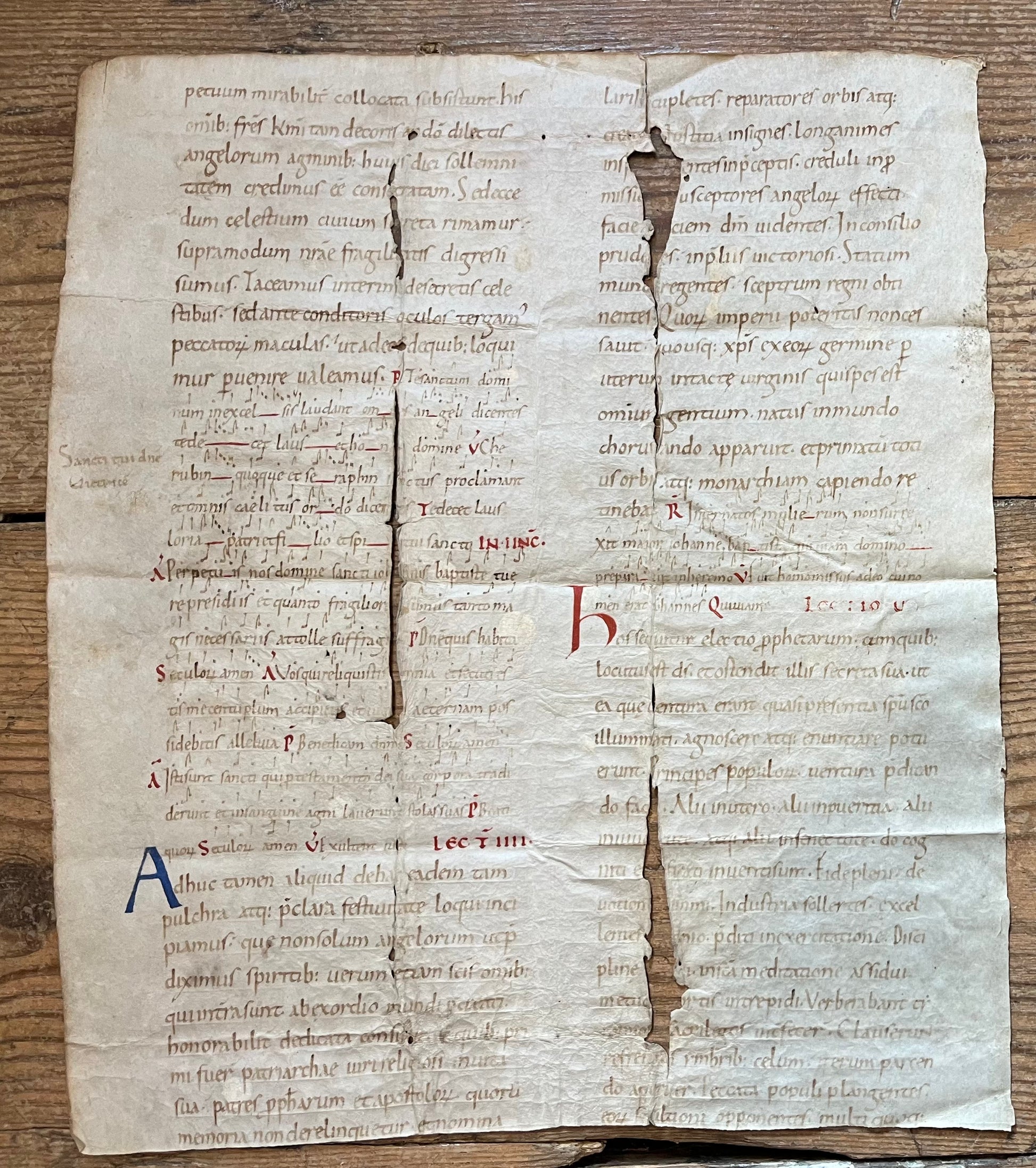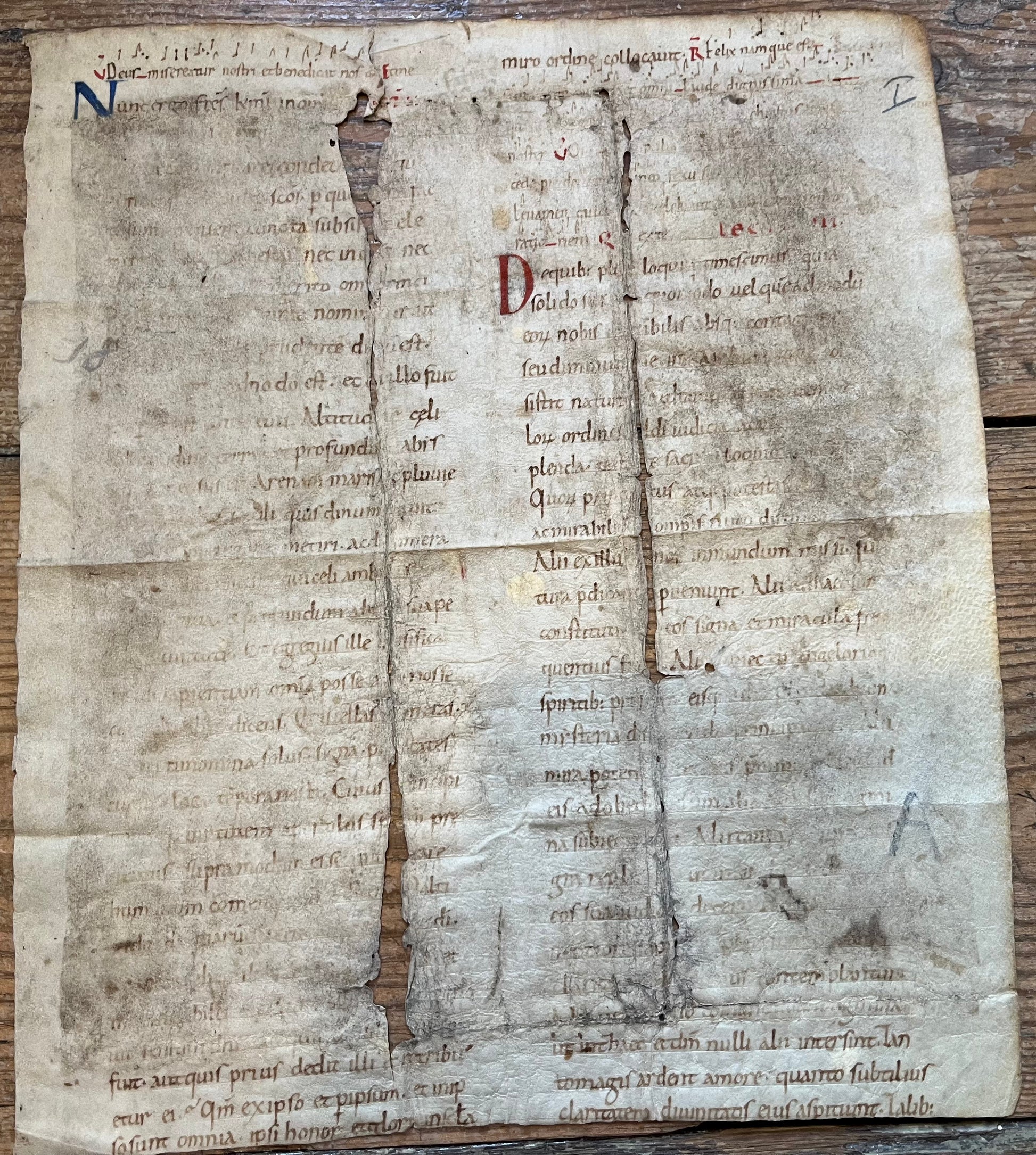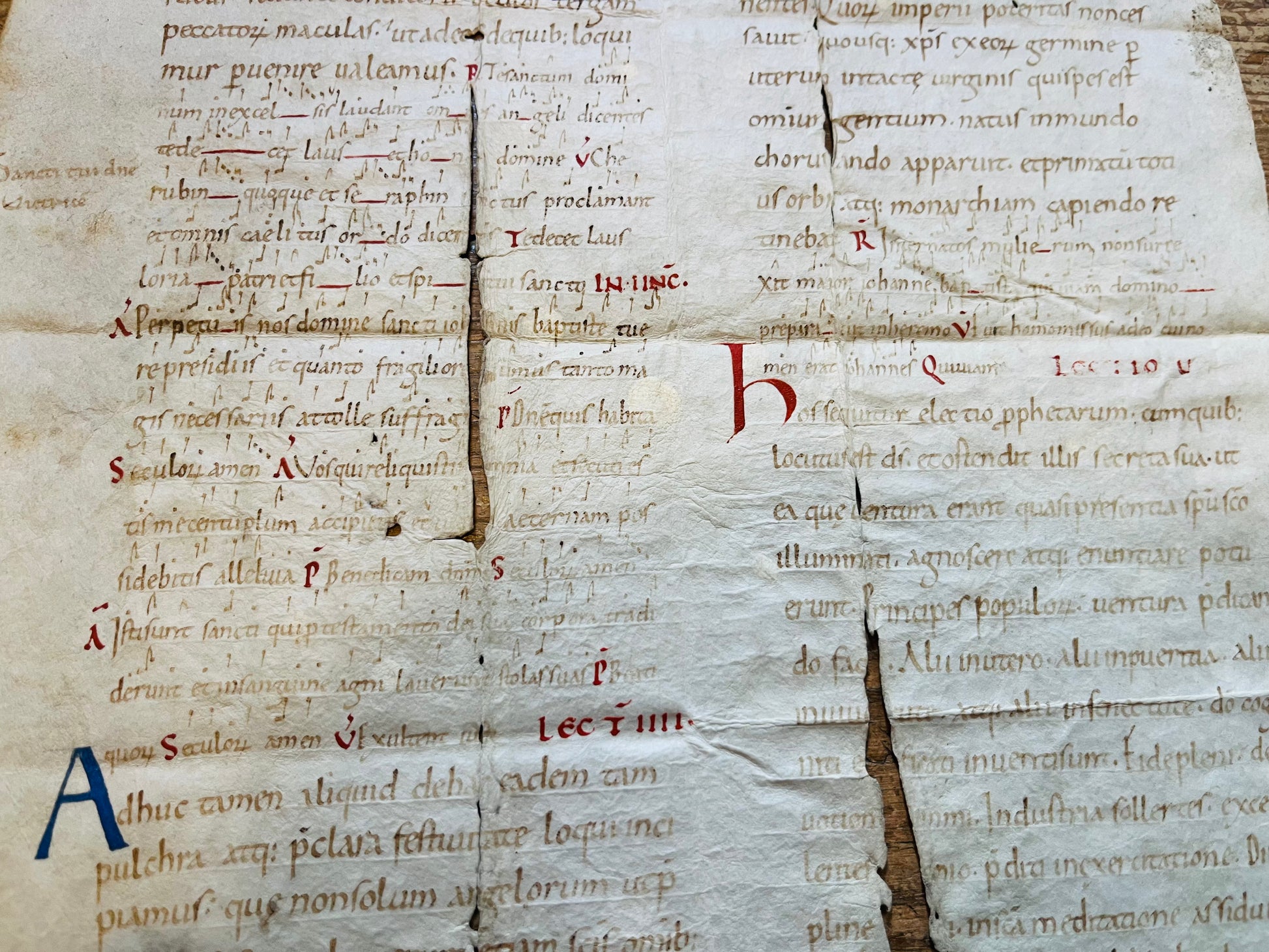De Bry Rare Books
c1100 Century Carolingian Minuscule manuscript with neumes - Nocturnes of the Office of All saints - Bede - Likely Norman French or English Origin
c1100 Century Carolingian Minuscule manuscript with neumes - Nocturnes of the Office of All saints - Bede - Likely Norman French or English Origin
Couldn't load pickup availability
c1100 Century Carolingian Minuscule manuscript leaf with neumes and extracts from Bede - Likely from a Norman French or English Breviary
26 x 20cm approx, text of 33 lines in two columns (each of~8.5cm width) in a clear Carolingian minuscule hand.
Two "Romanesque" Initials in red and blue
The Blue A starts Reading 4 "LECT IIII": "Adhunc tamen aliquid" which is Bedes 44th Sermon on Augustinus.
This is followed by the Responses: "Inter natos mulierum"
The Red H starts Reading 5 "LECTIO V" (faded): "Hos sequitur electio" which is another extract from Bede.
For a similar (but later) fragment of text - please see:
https://ifc.dpz.es/recursos/publicaciones/30/73/043fragmento47.pdf
The text likely comes from a Breviary (or Psalter Breviary) which were in use in Northern Europe during this period.
The angular adiastematic style of the neumes, in conjunction with the text, makes them likely to be Norman French or English in origin. Exchange between monasteries in England and France were common following the Norman conquest of 1066.
This leaf's text and layout also suggest a Norman (English/French) origin, rather than it being from an Italian, German or low country source. In particular "Manus tue fecerunt me (Job 10:8ff)" is found in lesson 4 of the Second Nocturne in the Office of the Dead, whereas it usually appears later in other French texts. The commentary sicut lac mulsisti me… sicut caseum me coagulasti is also common in Norman texts, whereas it is often shortened in other French origin texts. Lesson 9 "Adhuc autem aliquid de hac eadem lectione dicamus" also matches Norman origin texts.




